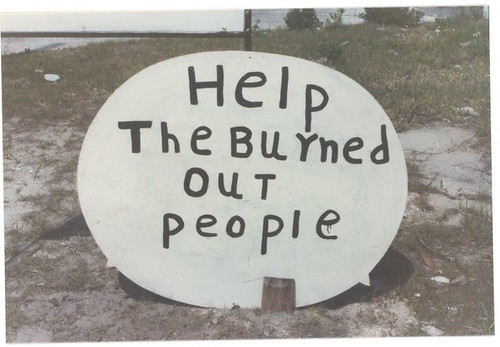What’s an easy trick that can help you escape unemployment?
ite about it. Robin Hanson points to this passage from Robert Trivers new book The Folly of Fools: The Logic of Deceit and Self-Deception in Human Life: Writing about job loss improves one’s chance of reemployment. This sort of writing appears to be cathartic – people immediately feel better. More striking, at least in one study, is a sharply increased chance of getting a job. After six months, 53 percent of writers had found a new job, compared with only…
1 min read
Are married people really happier?
ems most of the studies touting the increased happiness of married people have been making an error: they lump the divorced in with never-married. Via Newsweek: According to a new study, people over 40 who have never married could be just as psychologically resilient as their hitched peers. The finding challenges the reams of studies that conclude marriage is best for your health. And so it's welcome news for the growing demographic of singletons who want recognition that they're OK,…
2 minutes
Is the cure to feeling burned out someone telling you “you’re not burned out”?
ientists mentally fatigued people and then showed them fake "test results" demonstrating they not burned out and could keep going. Those given the fake results performed better on subsequent tests: The human mind is quite adept at modifying and regulating thoughts, judgments, and behaviors. Recent research has demonstrated that depletion of self-regulatory resources can impair executive function through restriction of working memory capacity. The current work explored whether the mere perception of resource depletion (i.e., illusory fatigue) is sufficient to…
1 min read
What’s a better predictor of dishonesty: creativity or intelligence?
eativity. Scott Barry Kaufman reports on a series of studies about creativity and dishonesty: In sum: creativity was a better predictor of dishonesty than intelligence. What's also interesting is you don't have to be a "creative type." Being in a creative mindset made anyone more likely to cheat: Those who were subconsciously primed with creativity-related words were more likely to be dishonest (chose "right" in ambiguous trials more frequently). What's more, people who entered a creative mindset were more motivated…
2 minutes
When doctors face death, what treatment do they opt for?
nimal, if any, says a USC physician. Via Zocalo Public Square (HT: Chas): It’s not a frequent topic of discussion, but doctors die, too. And they don’t die like the rest of us. What’s unusual about them is not how much treatment they get compared to most Americans, but how little. For all the time they spend fending off the deaths of others, they tend to be fairly serene when faced with death themselves. They know exactly what is going…
2 minutes
Would using Tiger Woods’ clubs make you a better golfer?
obably. It's called "positive contagion" and appears to be similar to the placebo effect: Many amateur athletes believe that using a professional athlete's equipment can improve their performance. Such equipment can be said to be affected with positive contagion, which refers to the belief of transference of beneficial properties between animate persons/objects to previously neutral objects. In this experiment, positive contagion was induced by telling participants in one group that a putter previously belonged to a professional golfer. The effect…
1 min read
How can you pick the highest ranked people out of photos?
ey appear the least cooperative: In 3 studies, we tested the hypothesis that the higher ranked an individual's group is, the less cooperative the facial expression of that person is judged to be. Study 1 established this effect among business school deans, with observers rating individuals from higher ranked schools as appearing less cooperative, despite lacking prior knowledge of the latters' actual rankings. Study 2 then experimentally manipulated ranking, showing that the effect of rankings on facial expressions is driven…
1 min read
Is the flavor really coming from the food? Or is it the bowl, the spoon, the music and the lighting?
nah Lehrer covered a study showing that music could influence the taste of wine. In the past he's posted on how people can't tell the difference between red wine and white wine with red food coloring in it. Is context really that important to what food tastes like and how much we enjoy it? Absolutely. While you're putting the right song on your iPod to make sure that Malbec explodes with flavor, you also might want to change the lightbulbs in…
4 minutes








